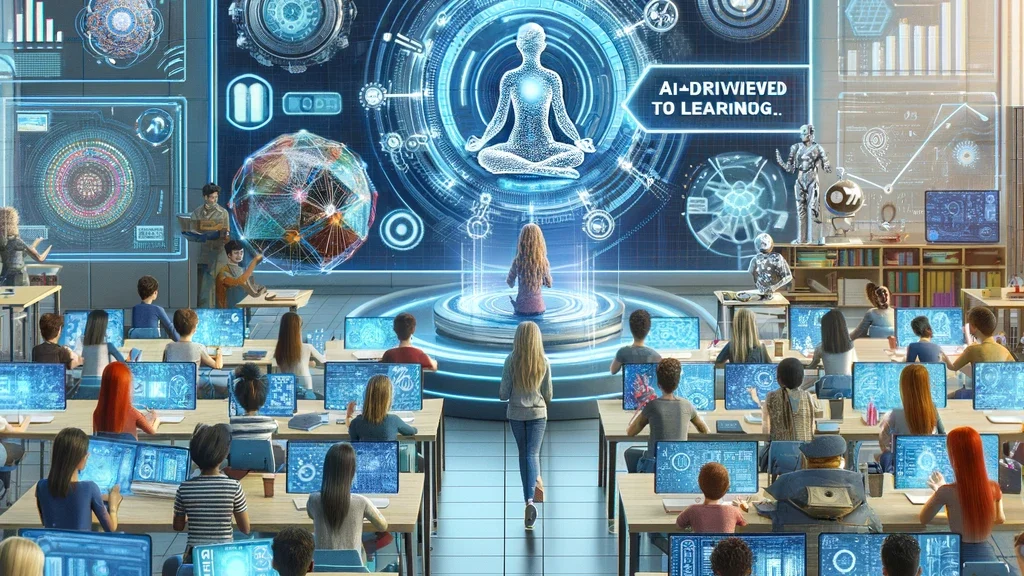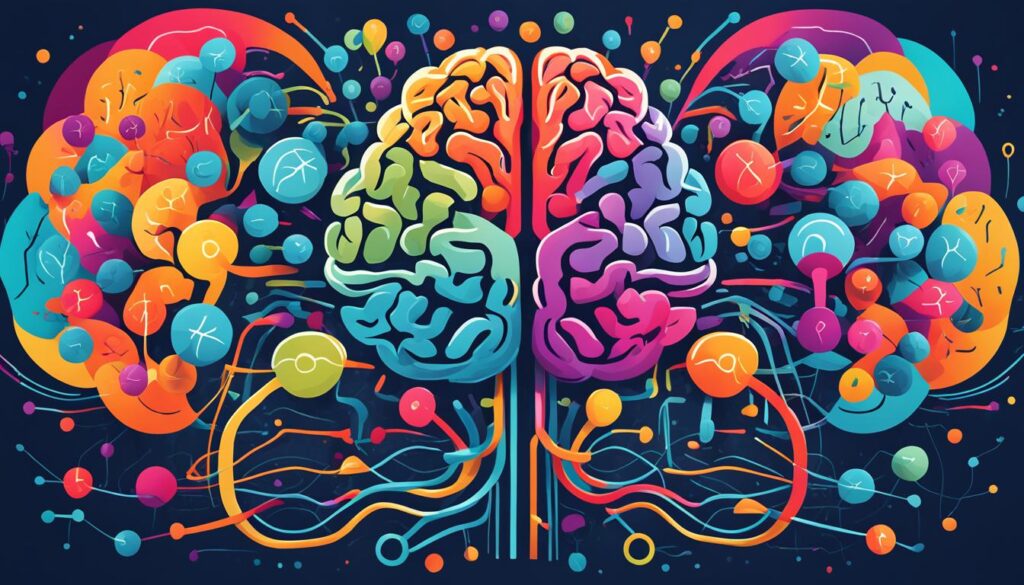In today’s world, education is becoming more personalized, focusing on each student’s unique learning style and needs. This shift from the traditional one-size-fits-all approach to personalized learning is largely driven by adaptive learning technologies and artificial intelligence (AI). These AI-powered tools are transforming the educational landscape, making learning more effective and engaging for everyone involved.
This blog post explores how AI is impacting personalized learning, the benefits and challenges of integrating AI in education, and what these changes mean for students and educators alike.
What is Adaptive Learning, and Why is AI Important?
Adaptive learning is an educational approach that uses technology to personalize learning for each student. It analyzes data and patterns to adjust content, pace, and teaching methods, optimizing learning outcomes.
The Role of AI in Personalized Education
AI makes adaptive learning more effective by analyzing data like student performance and learning styles. This helps create customized learning paths.
Here’s a table summarizing key ways AI enhances adaptive learning:
| Feature | Description | Impact |
| Personalized Learning Paths | AI uses data to tailor lessons and exercises to each student’s strengths and weaknesses. | Improved engagement and understanding. |
| Real-Time Feedback | AI provides instant feedback on student performance, helping them understand mistakes and learn faster. | Faster improvement and adaptation. |
| Scalability | AI systems can be deployed to large numbers of students, providing personalized learning at scale. | Equal access to quality education. |
| Accessibility | AI supports diverse learning needs, including disabilities, with customized resources. | Inclusivity and equal opportunities. |
- Supporting Students with Learning Disabilities: AI can support students with learning disabilities by offering personalized resources and support. A study called “AI for Students with Learning Disabilities” shows how adaptive learning technologies can improve education for these students. Learn more about AI’s role in education for students with disabilities.
- Beyond Cognitive Aspects: AI considers motivation and self-regulation, which are important for learning. The editorial “Beyond Cognition – Adaptive Technology for Individualized Learning” stresses the importance of addressing these factors to create a learning experience that resonates with each student. Discover how AI is influencing personalized education.
- Future Prospects: AI methods like machine learning and natural language processing advance adaptive learning technologies. The publication “The Prospects for Advancing Adaptive Learning Technology through AI Methods” examines how these methods create more personalized and effective learning environments. Explore the future of adaptive learning and AI.
“AI can revolutionize personalized education by providing tailored learning experiences that consider not only the cognitive aspects but also motivation, engagement, and self-regulation.” –
Beyond Cognition: Adaptive Technology for Individualized Learning
Benefits of AI-Driven Personalized Learning
Enhanced Learning Outcomes
AI-driven personalized learning systems can significantly improve student performance and retention rates. They provide personalized feedback and adjust content in real-time, allowing students to learn at their own pace and overcome challenges effectively. The “Artificial Intelligence in Education: Design and Evaluation of Adaptive Learning Systems” review highlights various systems that improve student engagement and success through AI-driven personalization. Learn more about how AI is enhancing education.
Scalability and Accessibility
AI makes education accessible to a wider audience, breaking down geographical and socio-economic barriers. By supporting diverse learning environments, AI-driven personalized learning systems provide equal learning opportunities for all. This accessibility is crucial in creating inclusive education systems that cater to all learners. Check out how AI is improving accessibility in education.

AI-driven learning tools provide real-time feedback, enhancing student engagement and success.
Real-Time Feedback and Continuous Improvement
AI in personalized learning provides instant feedback and continuously monitors student progress. This allows educators to make data-driven decisions and adapt teaching strategies to meet each student’s unique needs. This continuous improvement loop ensures students receive the support they need to succeed. Read more about the importance of real-time feedback in education.
Challenges and Considerations in AI-Driven Learning
While AI-driven personalized learning has immense potential, it also presents several challenges:
Ethical and Privacy Concerns
The use of AI in education raises ethical and privacy concerns related to data collection and usage. Ensuring student data is protected and used responsibly is crucial to building trust and safeguarding privacy. Schools must implement robust data protection measures to ensure compliance with privacy regulations. Learn more about AI ethics in education.
“With AI-driven personalized learning systems, students experience a tailored educational journey that caters to their individual strengths and weaknesses, ultimately leading to better academic performance and satisfaction.”
Artificial Intelligence in Education: Design and Evaluation of Adaptive Learning Systems
Technical Limitations and Accessibility
Implementing AI technologies in education requires overcoming technical challenges and ensuring equal access to personalized learning tools across different regions. This includes addressing infrastructure limitations and providing adequate support for educators and learners. Ensuring technology is accessible and user-friendly is essential for successful implementation. Explore solutions for overcoming technical limitations in education.
Teacher Training and Acceptance
Integrating AI in education requires professional development and training for educators. Addressing potential resistance to AI-driven teaching methods and fostering a culture of acceptance and collaboration is essential. Educators must be equipped with the skills and knowledge to effectively use AI tools in their teaching practices. Read about the importance of teacher training in AI education.
Here’s a table summarizing the challenges of AI-driven personalized learning:
| Challenge | Description | Solution |
| Ethical Concerns | Concerns over data privacy and security in AI systems. | Implement strict data protection policies. |
| Technical Barriers | Infrastructure limitations in implementing AI technology. | Improve access to technology and provide support. |
| Teacher Training | Need for training educators to use AI effectively. | Develop comprehensive training programs for teachers. |
| Accessibility Issues | Ensuring equal access to AI tools for all students. | Promote inclusive policies and equal access initiatives. |
Future Trends in AI and Personalized Learning
Innovations in Adaptive Learning
The future of AI-driven personalized learning is promising, with emerging trends and innovations set to transform education. Technologies like virtual reality, augmented reality, and gamification are integrated into adaptive learning environments to create more engaging and immersive experiences. These innovations make learning more interactive and effective. Check out the latest trends in AI and education.
“As AI continues to evolve, the integration of technologies like virtual reality and gamification in education is set to create a more immersive and engaging learning environment.”
The Prospects for Advancing Adaptive Learning Technology through AI Methods
Collaboration Between Technology and Education
The successful integration of AI in education requires collaboration between educators, technologists, and policymakers. Building a framework for integrating AI into mainstream education ensures these technologies are used effectively to support personalized learning and drive educational success. Collaborative efforts overcome challenges and maximize the benefits of AI-driven learning. Discover ways technology is collaborating with education.
Conclusion
AI-driven personalized learning is revolutionizing education by providing personalized and effective learning experiences for students of all backgrounds and abilities. By leveraging AI technologies, educators can create dynamic learning environments that cater to individual needs, enhance engagement, and improve outcomes.
As we explore the potential of AI in education, it’s crucial to address the challenges and considerations associated with its implementation. By fostering collaboration and embracing innovation, we can unlock the full potential of AI-driven personalized learning and shape the future of education.
Call to Action
We invite you to share your thoughts and experiences with AI and personalized learning. How do you see these technologies shaping the future of education? Join the conversation and explore the possibilities of AI-driven personalized learning.
References
- AI for Students with Learning Disabilities: A Systematic Review. (n.d.). This study explores how AI has been used to support students with learning disabilities, particularly through adaptive learning technologies, highlighting the potential of AI in enhancing educational outcomes for these students.
- Beyond Cognition – Adaptive Technology for Individualized Learning. (n.d.). This editorial discusses the use of adaptive technology, including AI, to tailor learning experiences to individual needs. It emphasizes the importance of considering various learner characteristics beyond cognitive aspects, such as motivation and self-regulated learning.
- The Prospects for Advancing Adaptive Learning Technology through AI Methods. (n.d.). This publication examines the future potential of AI in advancing adaptive learning technologies, discussing various AI methods that can be employed to create more personalized and effective learning environments.
- Artificial Intelligence in Education: Design and Evaluation of Adaptive Learning Systems. (n.d.). This systematic review analyzes different adaptive learning systems designed using AI, covering various research designs, contexts, strategies, and technologies used in adaptive learning from 2009 to 2018.
- Adaptive Learning Using Artificial Intelligence in e-Learning: A Literature Review. Education Sciences | Free Full-Text | Adaptive Learning Using Artificial Intelligence in e-Learning: A Literature Review. Retrieved from mdpi.com.
- Edutopia. (n.d.). How Technology Can Help Students Overcome Learning Disabilities. Retrieved from https://www.edutopia.org/article/how-technology-can-help-students-overcome-learning-disabilities.
- TeachThought. (n.d.). How AI is Influencing Personalized Education. Retrieved from https://www.teachthought.com/the-future-of-learning/technology/the-future-of-education-9-ways-technology-is-changing-education/.
- Forbes. Marr, B. (2020). The 5 Biggest Education and Training Technology Trends in 2021. Retrieved from https://www.forbes.com/sites/bernardmarr/2020/12/28/the-5-biggest-education-and-training-technology-trends-in-2021/?sh=5b50c4ff40a1.
- Brookings. (n.d.). Artificial Intelligence in Education: Promises and Implications for Teaching and Learning. Retrieved from https://www.brookings.edu/research/artificial-intelligence-in-education-promises-and-implications-for-teaching-and-learning/.
- Microsoft AI for Accessibility. (n.d.). AI for Accessibility. Retrieved from https://www.microsoft.com/en-us/ai/ai-for-accessibility.
- Edutopia. (n.d.). Importance of Feedback in the Classroom. Retrieved from https://www.edutopia.org/article/importance-feedback-classroom.
- EdTech Magazine. (2020). AI Ethics and Student Data: Balancing Innovation and Privacy. Retrieved from https://edtechmagazine.com/higher/article/2020/01/ai-ethics-and-student-data-balancing-innovation-privacy.
- The Tech Edvocate. (n.d.). 5 Technologies That Can Help Overcome Geographical Challenges. Retrieved from https://www.thetechedvocate.org/5-technologies-can-help-overcome-geographical-challenges/.
- Times Higher Education. (n.d.). How to Train Teachers to Use AI Effectively. Retrieved from https://www.timeshighereducation.com/news/how-train-teachers-use-ai-effectively.
- Inside Higher Ed. (2021). Experts Predict More AI Technology in Education. Retrieved from https://www.insidehighered.com/news/2021/01/12/experts-predict-more-ai-technology-education.
- EdTech Magazine. (2020). How Technology is Helping Colleges Build a Collaborative Campus Culture. Retrieved from https://edtechmagazine.com/higher/article/2020/08/how-technology-helping-colleges-build-collaborative-campus-culture.


















